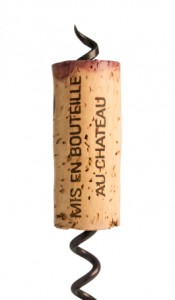With the convenience of twist-top wine being preferred by many Millennials, there is concern that the cork industry could be negatively impacted. There are three facts that could prevent stark decline of the need for wine corks. First, natural cork resists rotting and therefore holds up through a beneficial aging process that also perpetuates the need for wine cellars and supporting equipment, such as wine coolers. Secondly, choosing wines with natural cork closures benefits the environment. Thirdly, production of natural cork is an industry that significantly supports the job market in six countries.
Cork and cellar
About one milligram of oxygen per year is allowed into a wine bottle through a natural cork. This process beautifully supports long-term storage of fine wines as they gradually reach their peak over a course of years or decades in a wine cellar. At Rosehill Wine Cellars, we are committed to creating the perfect environment in which wine reaches perfection. We recognize how important the cork is, both because it is a natural material that resists rotting and because it allows the right conditions within the bottle for aroma and taste to be enhanced.
The cork and the environment
The production of cork is entirely sustainable. Trees aren’t cut down to harvest the cork. Instead, bark is removed. Seven to ten years later, another harvest is ready. Each time the bark is stripped of cork, the tree’s ability to absorb carbon dioxide is enhanced. This is an environmental benefit that helps to offset millions of tons of carbon dioxide in Portugal alone each year.
The cork and world economy
Cork production is among the planet’s few remaining well-paying agricultural jobs. Approximately 100,000 people in France, Portugal, Italy, Spain, Algeria, and Tunisia have gainful employment that is directly or indirectly supported by cork production. The clincher is that wine closures account for 70 percent of all cork produced in the world today.
Since the latter part of the 1980s, nearly 40 percent of the wine closure market has been lost. This is due to the use of plastic stoppers instead of cork closures. Research shows that wine bottle closure is not an important factor to Millennials, except for the fact that not needing a corkscrew to open the wine is frequently considered a plus.
By spreading the word that natural cork closures come with important environmental and economic benefits in the world, in addition to providing optimal storage for wine, the cork industry could flourish again at former levels. Ultimately, we are confident that the facts about cork and cellar will continuously sustain the demand for fine wines and wine cellars.






